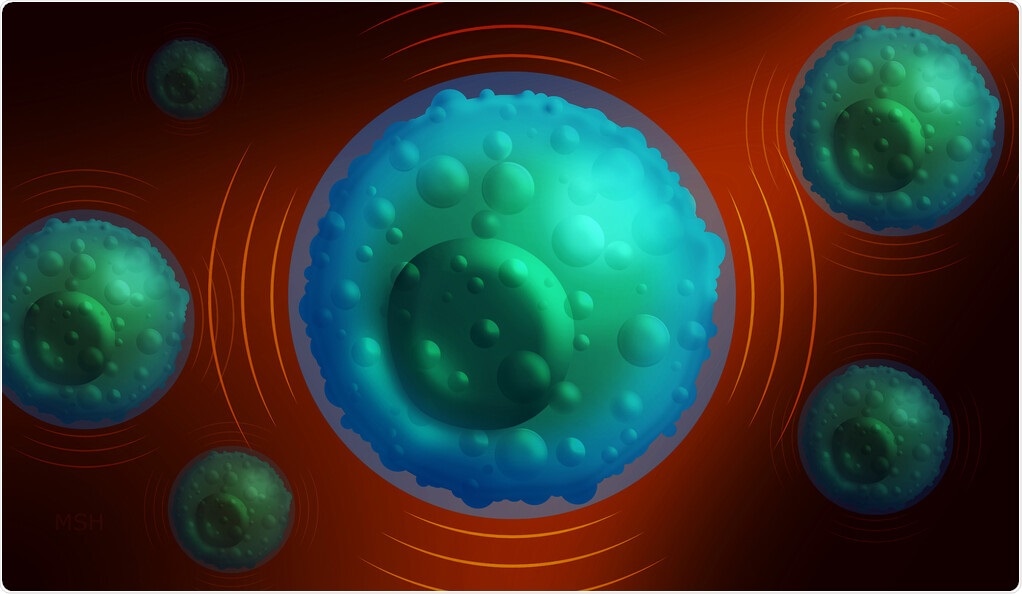In the last 10 years, immunotherapy has been used to save the lives of several cancer patients with lung cancer. These patients would otherwise have faced nearly definite death sentences. But only around 20% of patients treated using immune therapies, developed to improve or override natural limitations on immune system response, led to sustained benefits from treatment.

Image Credit: Illustration by Michael S. Helfenbein.
Researchers from Yale have helped recognize critical ways in which immune system cells communicate and congregate with each other to recognize and eliminate tumors. This knowledge can help enhance these outcomes.
The results of the study were reported recently in the journal Cell and might open the door for new vaccines that might help enhance survival rates in different types of cancer.
In the recent past, researchers have identified that patients most likely to survive lung cancer usually develop lymph node-like structures surrounding tumors. Similar to lymph nodes, these structures synthesize a host of immune system cells like CD4 helper T cells, which pinpoint tumors; CD8 killer T cells, which can work against cancer cells; and B cells, which synthesize antibodies against cancer.
The field has been trying to figure out how these mini-immune systems are set up in the tumor micro-environment and why do they correlate to great outcomes?”
Nikhil Joshi, Study Co-Senior Author and Assistant Professor of Immunobiology, Yale University
These immune system cells were found to interact with each other.
As part of the study, researchers headed by Joshi, Can Cui, a PhD student and physician at Yale School of Medicine, and Joseph Craft, the Paul B. Beeson Professor of Medicine (rheumatology) and professor of immunobiology, investigated tumor genetics of cancer survivors and developed mouse models with genetic characteristics analogous to the survivors.
The investigation showed that B cells have a greater role than just producing antibodies against cancer. To post a strong response by CD8 killer T cells, the B cells must first communicate with CD4 helper T cells to identify tumors to target.
T cells and B cells need to talk to each other before tumors can be targeted.”
Joseph Craft, Paul B. Beeson Professor of Medicine (Rheumatology) and Professor of Immunobiology, Yale University
Scientists are already developing different cancer vaccines to increase the production of T cells that have taken up residence around different types of cancer, such as glioblastomas and melanoma, as well as lung cancer. Both Moderna and BioNTech—which helped develop vaccines during the COVID-19 pandemic to enable the human body to detect and combat the virus—were originally formed, in part, to make cancer vaccines.
The model is already in place.”
Nikhil Joshi, Study Co-Senior Author and Assistant Professor of Immunobiology, Yale University
Cui adds that future cancer vaccines could be highly effective if they can boost both helper T cells and antibody-producing B cells to strengthen a wider immune system response. It would be viable to use such vaccines together with conventional immunotherapy treatments to enhance survival rates of patients with different types of cancer, the researchers added.